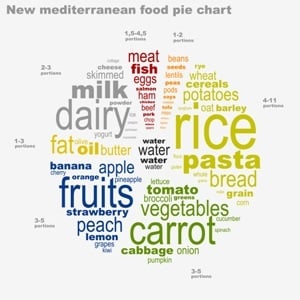
A Mediterranean diet may reduce your risk of one type of stroke, new research suggests.
Plenty of fruits and vegetables
People who most closely followed the Mediterranean diet were less likely to suffer an ischaemic stroke – caused by a blood clot – compared to people with the lowest adherence to the diet, the study found.
A Mediterranean diet includes plenty of fruits and vegetables, whole grains, legumes, nuts, fish, poultry and olive oil. There is limited consumption of red meat, sweets and saturated fats such as those in meat, butter and full-fat dairy products, according to the researchers.
While the research couldn't prove cause-and-effect, "overall, there is strong evidence, based on this study, that strict adherence to a Mediterranean diet significantly reduces stroke risk," said Dr. Paul Wright, chair of neurology at North Shore University Hospital in Manhasset, New York.
Wright was not involved in the new study, which was led by Dr. Ayesha Sherzai, a neurologist at Columbia University Medical Centre in New York City.
Sherzai's team analyzed data from more than 104,000 teachers in California, averaging 52 years of age, who are taking part in a long-term study. The participants, 90 percent of who were white, were divided into five groups based on how well they followed a Mediterranean diet.
Lower risk of heart disease
While closely following a Mediterranean diet was associated with a reduced risk of a stroke caused by a blood clot, the healthy eating plan had no effect on a person's odds for a bleeding (haemorrhagic) stroke, according to the study.
Read: Symptoms of a blood clot
According to the researchers, prior research has shown that people who follow a Mediterranean diet have a lower risk of heart disease, mental decline and death, but there is little information about how the diet affects stroke risk.
Wright noted that the study was especially rigorous, since the authors accounted for "other factors that would reduce stroke risks, such as exercise, total caloric intake, body mass index, smoking and menopausal/hormonal status."
The findings are to be presented at the American Stroke Association's annual meeting in Nashville. Findings from meetings are generally viewed as preliminary until they've been published in a peer-reviewed journal.
Read more:
Could a 'Mediterranean' diet extend your life?




 Publications
Publications
 Partners
Partners














